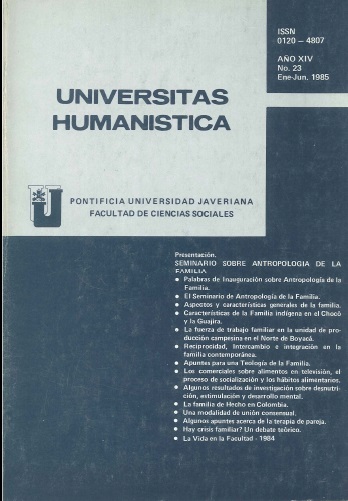Resumo
La familia parece hacer perdido progresivamente sus funciones. Ya no es la sede exclusiva de la formación de los individuos. Las instituciones escolares se han hecho cargo de la mayor parte de la educación de los hijos. La movilidad de la mano de obra provoca también la transferencia de la función de seguridad social a organismos públicos, lo cual origina una disminución de la solidaridad tradicional. Junto a la pérdida defunciones, se lamenta la disgregación de los sentimientos familiares, el fin de la autoridad paterna y con ella la crisis de la función del padre. La familia queda reducida al lugar de la afectividad y célula de consumo. Liberada de ciertas funciones sociales, no disminuye las exigencias; alejada de la familia amplia, no es fácil garantizar la seguridad afectiva de los hijos. Los vínculos cotidianos y materiales ya no son suficientes para cimentar la vida de la familia. Al lado de la afectividad la familia debe atender las necesidades espirituales de cada uno de sus miembros. La vida psíquica se convierte poco a poco en la base fundamental de la vida familiar, desplazando a un segundo término la familia unidad económica y de servicio cotidiano.

A revista Universitas Humanística encontra-se registada sob a licencia Creative Commons Versão 4.0 Internacional. Portanto, esta obra pode se reproduzir, distribuir e comunicar publicamente em formato digital, sempre que dado o crédito apropriado para os autores e a Pontificia Universidad Javeriana. Permite-se citar, adaptar, remixar, transformar, autoarquivar, republicar e criar a partir do material, para qualquer fim, mesmo que comercial, sempre que indicado apropriadamente o nome do criador, provido um link para a obra original e indicado se mudanças foram feitas. A Pontificia Universidad Javeriana não retém os direitos sobre as obras publicadas e os conteúdos são responsabilidade exclusiva dos autores, os quais conservam seus direitos morais, intelectuais, de privacidade e publicidade.
O aval sobre a intervenção da obra (revisão, correção, edição, tradução, formatação) e a subsequente difusão disponibiliza-se através de licença de uso e não através de transmissão de direitos, o que representa que a revista e a Pontificia Universidad Javeriana são isentas de qualquer responsabilidade que puder se derivar de uma prática ética pobre por parte dos autores. Em consequência da proteção fornecida pela licença de uso, a revista não fica na obrigação de publicar retratações ou alterar informações já publicadas, a não ser que a errata seja decorrente do processo de gestão editorial. A publicação de conteúdos nesta revista não representa royalties para os contribuintes.


